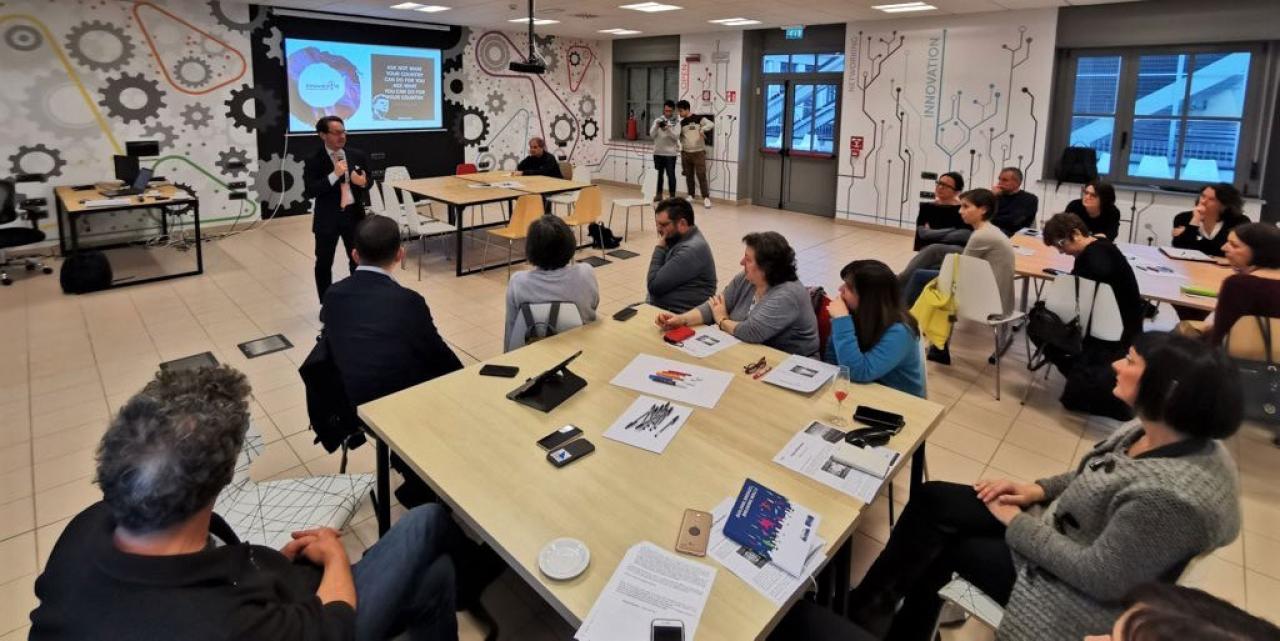
By Loris Gherra
Meeting with Rotterdam’s experts Jochem Cooiman and John de Ruiter
On November 27th, 2019 Marco Pironti, Deputy Mayor for Innovation and Smart city of the City of Torino, opened the Innovato-R workshop “Leading innovation in local administrations: how to create and sustain change through creative communities”, at Open Incet, in Torino.
In this respect, Pironti commented that “The mission of the City of Torino is to innovate and it is very important to compare our vision with other cities, like Rotterdam”.
Rotterdam is indeed one of the world’s biggest port cities and the most cosmopolitan and second largest city in the Netherlands with its 620.000 inhabitants. With its impressive skyline, it is also known as “The Manhattan on the Meuse”. Rotterdam is an architectural and cultural metropole with countless attractions, festivals and museums.

Almost 50 civil servants of the City of Torino attended the workshop, among them also Gianfranco Presutti, Head of EU Funds and Innovation Department, which was hold by Fabio Sgaragli, Head of Innovation of Fondazione Giacomo Brodolini and Lead Expert for URBACT. The workshop in Torino, which took place a few weeks after the 3rd transnational meeting in Rotterdam, had the objective of sharing successful practices of a leading local administration, with the help of two key figures from the City of Rotterdam, and of engaging participants in applying the principles behind the practices in their organisational environment. Helping local administrations to become more innovative organisations can have a positive impact on the lives of local communities.
The two guests from The Netherlands were Jochem Cooiman and John de Ruiter.
Jochem Cooiman is the Strategic Advisor on Innovation of the City of Rotterdam. His job consists in enhancing the innovative capacities among the civil servants, by adding competences on network, methods, talent and energy. He is a founder member of the innovation Network Rotterdam (iNR).
John de Ruiter is the Project Leader for Innovation of the City of Rotterdam. He works for the Next City team. This team focuses on how public organisations can improve the way the city copes with the transition processes involved in creating new organisational structures, improving existing ones, redefining processes and creating awareness.
“Technology innovation cannot be set up without prior social innovation” underlined Cooiman, who presented the concept of the Innovation Circle. 
Where the letters N, M, E and T mean Network, Method, Energy and Talent. In order to promote innovation and change it is indeed necessary to implement a culture of cooperation (Networking), sharing ideas (Energy of people), building one’s own culture of innovation, starting from students at school and in the university (Talent) and doing all this without losing the perspective of the future (Method).
Any innovation could be described with a curve, starting with a new idea, making mistakes, trying again and again. This innovative idea could be turned into a project or a procedure that can be used by a minority in a first stage and then by the majority of people on a later stage. Once an innovation is adopted by the majority of people is no more an innovation.
Mr. Cooiman made the example of the ocean explorations of the XV-XVI centuries: “More than bringing back new food, gold or items from the New World, it has been important to describe the voyage with its challenges and the solutions adopted, and to share all these information to allow other men to also undertake the voyage and get safely to their destination”.
Lectures and workshops are very important to explain and to connect people in order to practically implement innovation.
Innovation for the communities is INSPIRATION, KNOWLEDGE and PRACTICE.
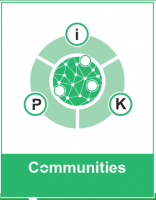
And an effective network could be realized with 3 points of contact: DIGITAL, PHYSICAL and SOCIAL.
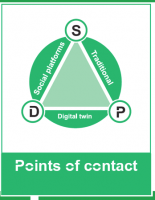
The Innovation Network Rotterdam (iNR) is a community of over 1.600 civil servants, together with external people, such as academics, entrepreneurs and also committed citizens, which frequently gather in a variety of meeting point that are social, physical as well as digital.
“The concept of burgers well explains how innovation could be set up taking into account everyday needs of the citizens and the “abstract concepts” of the big international organizations, such as United Nations”, stated Cooiman.
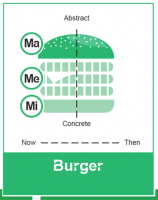
The cultural mediation appears in the middle place of the “burger” symbolizing the public administration. This issue together with innovative ideas could achieve important goals, such as the 17 Sustainable Development Goals of the UN.
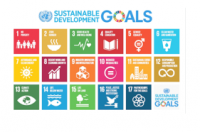
In his speech, John de Ruiter focused on the concept of Normalizing the unusual in what can be seen as the Next City. The future is made by changes in technology, society, with reflection in the physical city. Next City has special kind of challenges, like mobility, waste recycling, circular and digital economy, etc... Next City is about uncertainty but also about complexity, where there is someone who knows and someone else who doesn't know.
Wicked problems could be faced up with a Fragmenting Approach, but the solution could be a next wicked problem.
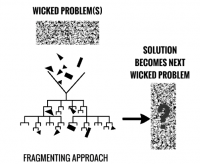
So it is better to face up wicked problem with an Integrating Approach.
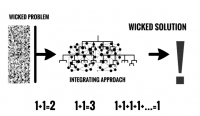
NEXT CITY is about Uncertainty, Complexity, but also about Organisational (Copying) Systems.
Mr. de Ruiter’s question “Which conditions are needed for successfully running an innovation project?” was answered as to “STAY UNDER THE RADAR”. That means to keep out of control, out of planning, out of structure and management. Being unstructured, making mistakes and above all Exploring. In two words: “Explore vs Exploit"

Next City Approach starts from Early Warning, getting signal from the future and trying to find new ideas and solutions, always “staying under the radar”, (in the Yellow Informal Area) where it is possible to explore, to experiment. Then, it will be viable to NORMALIZE (FORMALIZE) the results.
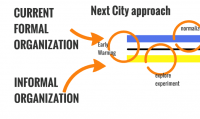
Gianfranco Presutti underlined three key points: skepticism as to innovation in an economical and financial crisis, as the one we are living; hierarchy as an enemy; and last but not least: “We need to bring home results and we can get results just using moderation, because the risk is that falling in love with innovation brings to an end the result itself”.
In the afternoon, participants were divided into four groups, in order to work and to answer some of the questions:
- How do we identify early trends and critical transitions?
- How do we internally capitalize the results of our experimenting?
- How to normalize innovations?
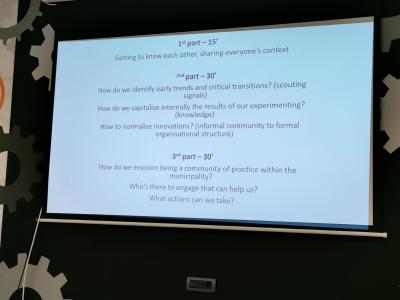
The conclusions of the afternoon session underlined that during the innovation process set up in Torino innovators began to see some results however these results were not shared. The workshop participants need to learn how to share knowledge and how to create a network to share the results. It would also be important to dispose of a physical place where to connect regularly and where to create working groups meeting independently from the formal hierarchy. A fundamental help could come from a political commitment (circular information). Storytelling should also be developed and feedback from citizens should be sought in order to prevent the risk that legacy could be lost after the conclusion of the projects.
The workshop ended with a standing ovation by all participants for a very valued workshop.
